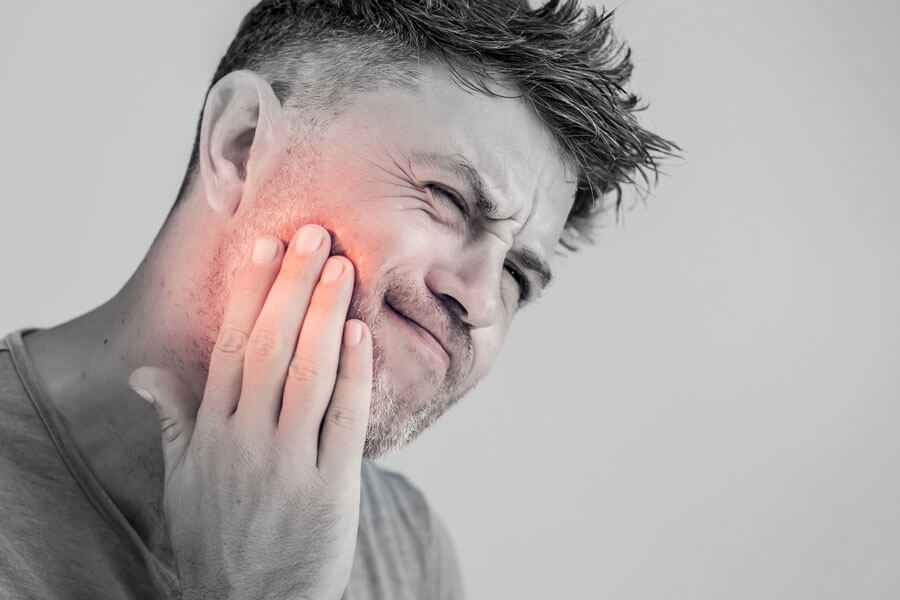Don’t let fear take your tooth
If you hit this point, you’ve gone too far!
From someone who has unfortunately had firsthand experience, reaching the point where a dental abscess develops is a place you do not want to go. If you’re paying enough attention to your teeth while also practicing due diligence regarding your dental care, you’ll probably never reach this place. An abscess occurs when preexisting damage in a tooth goes unattended and eventually an infection can take hold. At the root of a tooth, a pus-filled pocket forms causing redness, severe soreness, and in my case, tooth removal…
Thankfully this doesn’t have to be you. There are plenty of measures we can take to prevent an abscess and keep our beautiful smiles. Being aware of how an abscessed tooth can occur, however, can only be a benefit for us and our overall dental health.
Causes
- External damage: While a crack or chip in a tooth may not seem like the end of the world, bacteria can develop causing further harm and infection.
- Poor oral health: Bacteria builds up through unnatural spaces in our teeth and when left untreated, can reach the root of the tooth leading to an abscess.
- Brushing or flossing too vigorously: Applying too much pressure and wear to your teeth and gums can actually be harmful to your teeth possibly resulting in an abscessed tooth.
- Dental surgery and trauma: Complications from dental surgery are not a foreign idea, therefore it’s always important to ensure your healing process is complete after any dental surgery.
While information about the causes can be helpful, what actual prevention can I take to avoid an abscessed tooth?
Abscess Tooth Prevention
- Always drink plenty of water, avoiding sugary drinks when possible
- Brush your teeth twice a day using fluoride and enamel protecting toothpaste
- Floss your teeth daily
- Change your toothbrush every 3-4 months
- Try to use a mouth wash containing fluoride
- Eat healthy foods and lessen your sugar intake
- Go for routine visits to your dentist for cleaning and checkups
Avoiding tooth decay is the first step to avoiding a tooth abscess. As we mentioned earlier, an abscess is never the initial warning signal our bodies give us to indicate a problem. If we’re in tune with our bodies and know how to listen to our body signals, we’ll be prepared to take needed action.
Possible Abscess Symptoms
- Sensitivity to pressure and changes in hot/cold temperature
- Constant toothaches, jaw and ear pain
- Redness and/or bleeding of the gums
- Swelling in the face and cheeks
- Swollen lymph nodes under your neck and jaw
- Problem breathing and swallowing
If you do find yourself in an unfortunate situation where dental treatment is needed, there are a few options our dentists have for us. In general, there are three different types of dental abscesses.
- Gingival Abscess
This type of abscess is generally seen just in the gum tissue and does not generally reach the tooth.
- Periodontal Abscess
This abscess originates in the supporting bone tissue and structures of the teeth.
- Periapical Abscess
The Periapical abscess first takes hold in the inner pulp of the tooth and expands out from there.
And depending on what your dental hygienist determines during your exam and findings will help determine what type of treatment is best suited to fix and heal your tooth.
- Dental Incision
A small cut is made in the abscessed tooth in order to drain the pus and bacteria then cleaned and sealed up.
- Treatment for Periodontal Abscess
For this abscess, your dentist will clean and drain the bacteria that is found in the periodontal pockets.
- Treatment for Periapical Abscess
In most cases, a root canal will need to take place for this abscess; the root and canals of your tooth are cleaned in order to save the actual tooth.
- Tooth Extraction (Removal)
If the infection has taken hold and caused too much damage, your dentist may not be able to save your tooth and removal will be needed.
Now we’ve gone over a ton of information regarding what an abscess is, what causes them, and how we best be treated by our dentist. The fact of the matter is, your teeth are nothing to play with and if you do begin to feel or see anything out of the ordinary in your teeth, DO NOT DELAY, go see your dentist right away!



